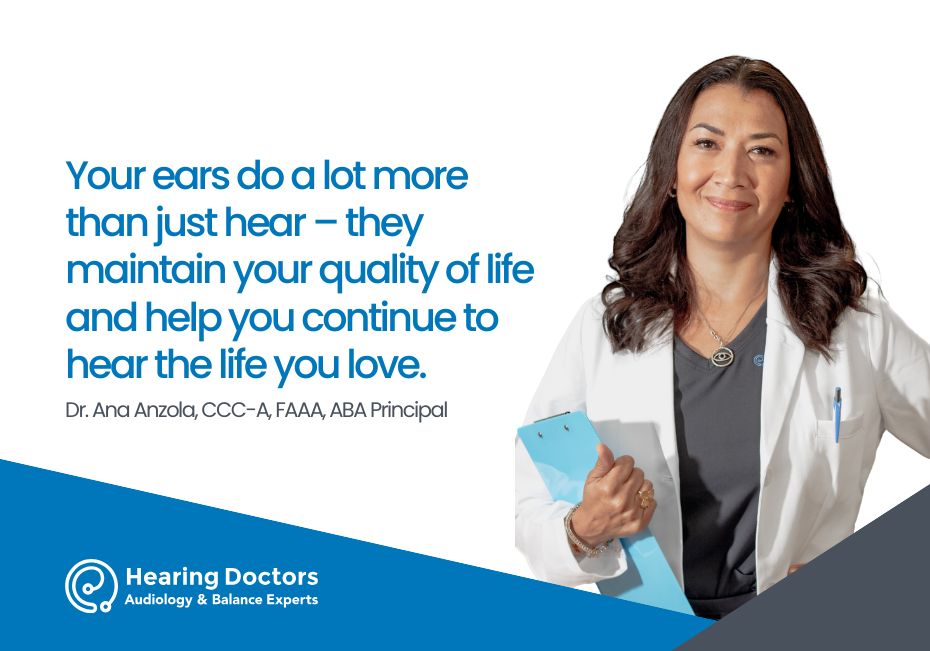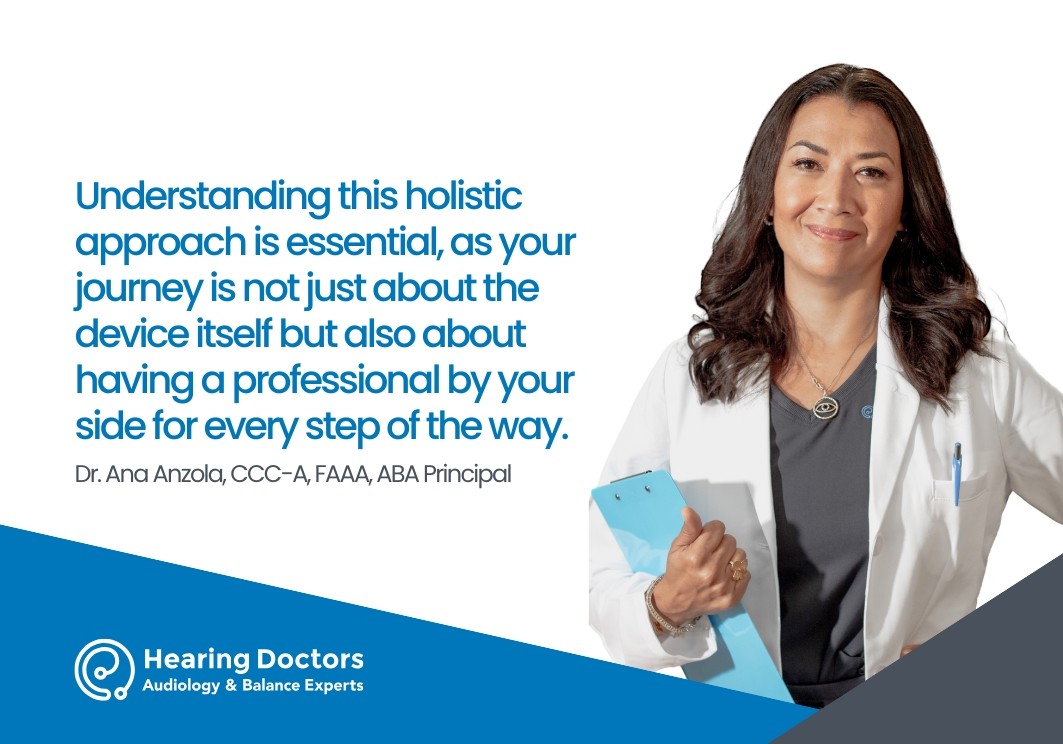Dr. Ana
Anzola, CCC-A, FAAA, ABA Principal
Today I want to highlight an important topic that affects many of our patients—the connection between hearing health, balance, and cognitive issues.
At the end of May, I was interviewed about this topic on WJLA, and I’m excited to share some insights from that discussion.
Hearing Health and Cognitive Decline: What’s the Connection?
We often encounter patients who are concerned about their hearing but are unsure whether their difficulties are due to hearing loss or cognitive decline.
The truth is, the symptoms can look very similar. If you’re missing words, thinking people are mumbling, or your family has noticed you’re not hearing as well as you used to, it might be time to get your hearing checked.
The Brain’s Role in Hearing
It’s crucial to understand that we don’t just hear with our ears; we hear with our brain. Our ears detect sound, but our brain processes it, making sense of the noises around us.
When hearing starts to decline, the brain works harder to understand sounds, which can lead to cognitive overload. Over time, this can contribute to cognitive decline, as the brain is constantly strained.
Balance and Hearing Health
Another aspect of hearing health is balance. The inner ear, which is responsible for hearing, also plays a vital role in maintaining balance.
Issues with hearing can often coincide with balance problems, leading to an increased risk of falls, especially in older adults.
Comprehensive Hearing Assessments
We conduct comprehensive hearing assessments that go beyond just detecting sounds. We evaluate balance and cognitive function to provide a complete picture of your hearing health.
This thorough approach allows us to differentiate between hearing loss and cognitive decline, ensuring you receive the appropriate care and treatment.
Early Detection Is Key
One of the most critical messages I want to convey is the importance of early detection. Don’t wait until hearing loss significantly impacts your daily life.
If you notice any signs of hearing difficulties, such as missing words or thinking people are mumbling, schedule a hearing assessment. Early intervention can help mitigate the effects of hearing loss on cognitive function and overall quality of life.
A Personal Commitment to Your Hearing Health
As an audiologist, my mission is to improve your hearing health and, by extension, your overall well-being. By addressing hearing issues early, we can help prevent further complications, such as cognitive decline and balance problems.
Schedule Your Hearing Assessment Today
If you or a loved one is experiencing signs of hearing loss or cognitive decline, don’t hesitate to reach out to us at Hearing Doctors.
Our team is dedicated to providing personalized care tailored to your unique needs. Together, we can ensure that your hearing health is maintained, improving your quality of life and cognitive function.
Thank you for taking the time to read about this important topic.
Remember, taking care of your ears is not just about hearing better—it’s about living better.
Popular Blogs

Jun 3, 2025
Dr. Ana
Anzola, CCC-A, FAAA, ABA Principal
Understanding Types of Hearing Loss: Sensorineural, Conductive, and Mixed

May 21, 2025
Dr. Ana
Anzola, CCC-A, FAAA, ABA Principal
What Impact Is Artificial Intelligence Having on Hearing Aid Technology?

Apr 28, 2025
Dr. Ana
Anzola, CCC-A, FAAA, ABA Principal
Do You Think You’re Too Young for Hearing Loss?

Apr 15, 2025
Dr. Ana
Anzola, CCC-A, FAAA, ABA Principal
The Best Hearing Aids in 2025: Insights From a Doctor of Audiology


